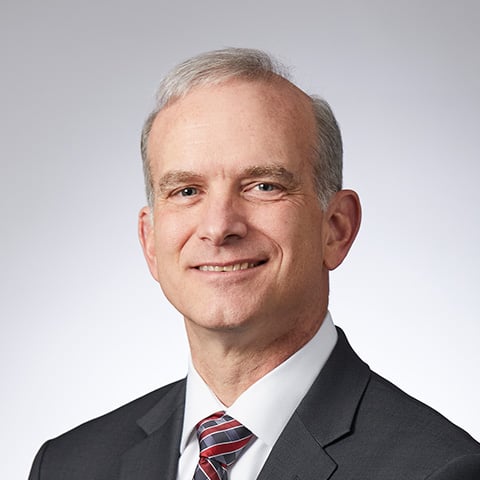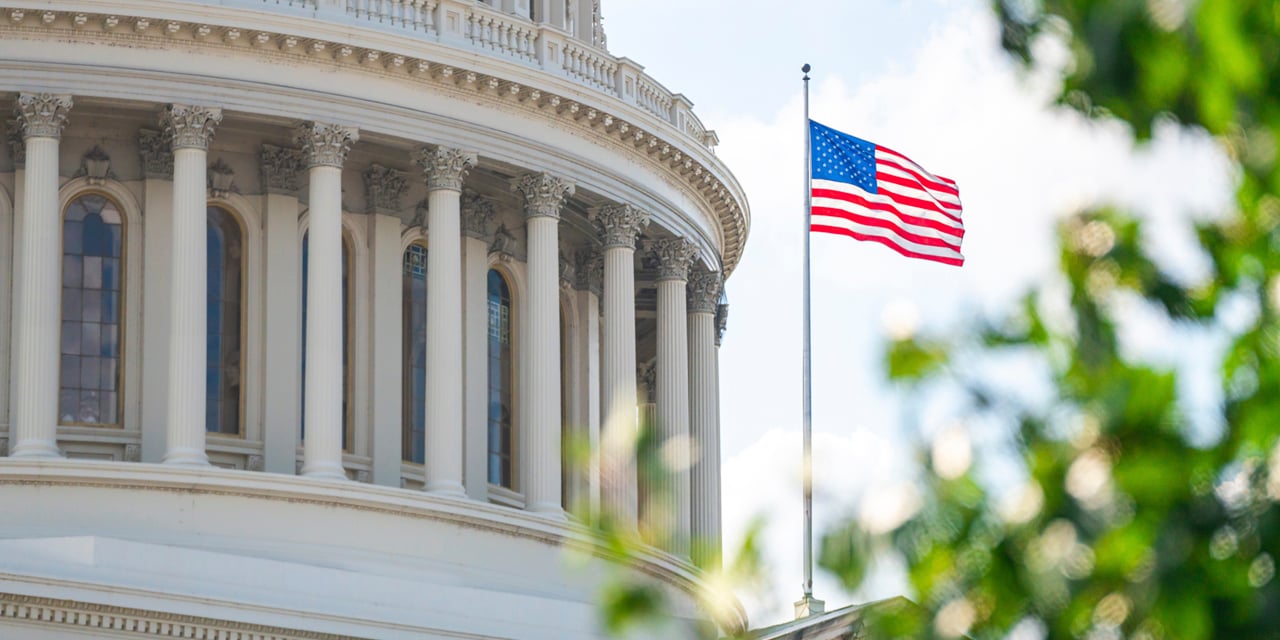
Planning Moves to Consider Before Year-End
 Timothy Steffen, CPA-PFS, CFP®, CPWA®
Timothy Steffen, CPA-PFS, CFP®, CPWA®
Director of Advanced Planning
2025 has been a year marked by economic uncertainty, sweeping tax legislation, and a series of pivotal policy developments – all unfolding in a world that seems to shift by the minute. These changes can have a direct impact on your financial plan, making it more important than ever to reassess and adjust your strategy for this year and the year ahead. As you wrap up 2025 and look toward a strong start to 2026, consider the following planning moves.
Maximizing Your Savings
While how you invest is an important part of building a nest egg, the first step is putting that money aside. A variety of new opportunities and elevated contribution limits increased the amount you can contribute towards retirement for 2025, so make sure your savings are keeping pace with the higher levels. If you turned 50 this year, beyond standard contributions, you’re also eligible to make an additional catch-up contribution to those accounts. And new in 2025, if you’re between the ages of 60 and 63 you can contribute an additional amount to your employer-sponsored retirement plan. Don’t miss out on these opportunities to accelerate your savings as you approach retirement.
| Retirement Account Types | 2025 Contribution Limits | Additional Age 50+ Catch-Up Contributions | Age 60-63 "Super Catch-Up" Contributions |
| 401(k) | $23,500 | $7,500 | $3,750 |
| SIMPLE IRA | $16,500 | $3,500 | $1,750 |
| Traditional/Roth IRA | $7,000 | $1,000 | N/A |
Roth conversions are always a popular topic, in particular for those who can’t directly contribute to a Roth IRA. While conversions can be a viable option – especially for those whose taxable income is lower this year – they come with a lot of considerations worth discussing with your Baird Financial Advisor. Keep in mind that the conversion must be completed before year-end to be taxable this year, so don’t wait too long to have the conversation.
If you have a high-deductible health insurance plan, consider taking advantage of the increased contribution levels for your Health Savings Account (HSA), with additional catch-up contributions for those age 55+. HSAs are one of the most tax-advantaged savings tools we have available today, with tax deductible contributions and tax-free income later in life. And you don’t need to be employed or use an employer plan to fund an HSA – as long as you have the right type of health insurance and aren’t enrolled in Medicare, anyone can open an account.
| 2025 HSA Contribution Limits | Additional Age 55+ Catch-Up Contributions | |
| Individual Coverage | $4,300 | $1,000 |
| Family Coverage | $8,850 | $1,000 |
After you’ve maximized your contributions to your retirement plans and other accounts, it’s important to check in from time to time to see how your portfolio is doing. We’ve seen some fast and significant swings in the market this year, so it’s possible your portfolio has drifted from your target allocation. Year-end is a perfect time to revisit your accounts to make sure your allocations still match your target and you’re not taking on more – or less – risk than you anticipated.
Addressing Life’s Changes
Our lives can change quickly and dramatically, and the plans you put in place just a year or two ago can become out of date before we even realize it. Use year-end as a time to reassess where you are, what’s changed over the last year, what you expect in the year to come, and how it may affect your financial plan.
Consider any changes to your family situation this year or in the coming year: marriage, divorce, or welcoming a new member to the family. Or perhaps you suffered the loss of a loved one during the year. The impact of all of those events on your tax situation can be significant, both this year and next, and your Baird Financial Advisor can help assess the impact to your plan and identify appropriate planning opportunities.
This year also brought new tax planning opportunities to keep in mind. Inflation has not only driven up the retirement contribution limits, but it’s had a big effect on tax brackets, phaseout ranges, the standard deduction and more. If you turned 73 this year, you’re also now subject to Required Minimum Distributions, or RMDs, from your IRAs and other retirement accounts.
And as you look ahead to year-end, it’s important to consider how legislative changes may affect your financial picture. The signing of the One Big Beautiful Bill Act in July brought long-awaited clarity to the tax code while creating a variety of planning opportunities, including new deductions, expanded 529 benefits and a new investment savings vehicle for children. Each of these could be especially relevant if your family or financial goals have shifted this year. Additionally, the Social Security Fairness Act, signed early this year, eliminated two long-standing rules that impacted many retirees, potentially altering your retirement income strategy and when you choose to begin Social Security.
Passing On Your Legacy
Your Baird Financial Advisor’s primary focus is ensuring your financial goals are met, and for many that includes plans to support generations to come.
Often this starts with making gifts to family members. For 2025, the annual gift tax exclusion increased to $19,000, and those gifts must be completed before year-end. In addition, the lifetime exemption amount also increased this year, meaning individuals can now shield up to $13.99 million from the federal estate and gift tax.
Regardless of the size of your estate, it’s always a good idea to review your will, trusts, beneficiary designations, health care directives and other documents. Ensuring these are all up-to-date can go a long way toward making it easier for your heirs to manage an otherwise difficult time.
Year-end is also a time to consider your charitable giving intentions, and how to support organizations in the most tax efficient manner. The OBBBA introduced several updates to charitable giving rules and permanently increased the standard deduction. Because of this, discussing which strategy (itemizing or taking the standard deduction) is right for you with your Baird Financial Advisor is crucial.
- A common strategy is to “bunch” contributions – combining multiple years of charitable gifts into one year to maximize their benefit. As you think about your gifting plans this year, consider whether accelerating future gifts into 2025 provides a greater tax benefit than spreading those gifts out over multiple years.
- By combining a bunching strategy with a donor advised fund, you secure the full tax benefit of the gift today, while giving you time to decide which charities will ultimately benefit from your generosity.
- If you typically use the standard deduction, it may be worth waiting until 2026 to make cash donations. That’s when a new deduction for non-itemizers will go into effect – $1,000 for individuals and $2,000 for joint filers. This benefit won’t be available in 2025, so deferring could help you take full advantage of the new rules.
- Another strategy to maximize the value of your gift is the Qualified Charitable Distribution, or QCD. This technique allows you to move assets from your IRA to charity without having to recognize any income, and for 2025 the limit on QCDs has been increased to $108,000 per person. If you’re over 70 ½, this can be a great way to support charities in a tax-efficient way.
Whether your plan is to support individuals or charities, now or in the future, your Baird Financial Advisor, along with our wealth planning specialists, can help you understand your options.
As we head into the end of 2025 and look toward 2026, take a moment to reflect on all that you’ve accomplished this year, both personally and financially, and what you’re looking forward to in the year ahead. Your Baird Financial Advisor team is here to help you stay on track along the way. From all of us at Baird, we wish you a happy holiday season and we look forward to working with you in the New Year and years to come.
This article was originally published in October 2024 and updated in September 2025.
This information has been developed by a member of Baird Wealth Solutions Group, a team of wealth management specialists who provide support to Baird Financial Advisor teams. The information offered is provided to you for informational purposes only. Robert W. Baird & Co. Incorporated is not a legal or tax services provider and you are strongly encouraged to seek the advice of the appropriate professional advisors before taking any action. The information reflected on this page are Baird expert opinions today and are subject to change. The information provided here has not taken into consideration the investment goals or needs of any specific investor and investors should not make any investment decisions based solely on this information. Past performance is not a guarantee of future results. All investments have some level of risk, and investors have different time horizons, goals and risk tolerances, so speak to your Baird Financial Advisor before taking action.


